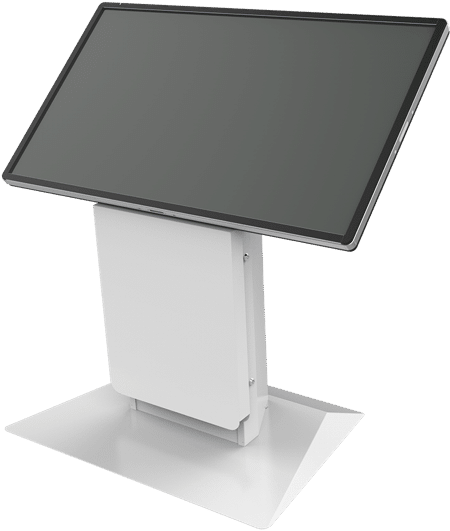Malware attacks are commonplace and cyber security kiosks are your first line of defense. According to a study conducted by the Department of Homeland Security, 60% of found thumb drives were plugged in to a device. What this means is that three out of five people who find a random thumb drive, whether it be at a bus stop or on a coffee shop table, will eventually plug the thumb drive into a computer or other device. Imagine the risk this presents to organizations with employees finding thumb drives and inadvertently plugging them into enterprise resources.
The consequence of this risk is the spread of malware and viruses. Hackers will place this malicious software on thumb drives and other portable media and distribute the drives to public places, hoping that the drives will be found, and plugged into devices by unsuspecting people. In some cases these people could be employees that bring these devices to work. In one example, two power plants in the United States were attacked in this manner [1].
The Solution: OPSWAT Cyber Security Kiosks
Educating employees on the risks associated with using found media devices is a basic measure, but education is not enough because people may forget about or disregard the possible consequences. The best measure is to install cyber security kiosk stations at convenient locations so that employees can have access to, and a constant reminder of, the importance of scanning their portable media for malware and viruses.
Preventing Unintentional Negligence
Educating employees about the proper use and security risks of portable media is one thing, but what about vendors, contractors, and other visitors? According to cyber security expert Bryan Krebs, the infamous Target breach of 2013 was the result of a weakness created by a contract worker [2]. With education usually being internal in nature, having cyber security kiosks at all primary entrances to a facility will raise awareness to guests that all portable media should be scanned prior to use on premise.
How it Works
When introduced to the kiosk, media is scanned by anti-virus and anti-malware software. This software is constantly updated to detect and prevent the latest iterations of threatening software. Should a piece of foreign media be deemed unsafe, the user will notified and the threat can be safely deleted or in the case of the most aggressive malware, the device itself may need to be destroyed.
Prevalence of Malware
Certain government regulations require all portable media to be scanned prior to use. In one year alone government locations detected more than 1.5 million malware and virus threats. This statistic shows the prevalence of these threats. For businesses and organizations that are not required to scan media, the threat presents the exact same risk. Like the government, businesses and organizations should scan any portable media prior to use and benefit from greater control over their systems.
Convenience
Corporate security, IT security and managers can rely on cyber security kiosks to help protect companies from threats at every corner. For example, large organizations can install kiosks that do nothing other than scan portable media for viruses. Imagine how simple it can be to keep IT systems safe when there are cyber security kiosks stationed at every entrance of a facility.
Improve IT Staff Efficiency
Quality IT human resources are expensive, and many times overworked. Issues like password reset and user provisioning are already enough of a burden, but the extra overhead of having to police portable media just adds to the problem. Giving employees the option to use a kiosk to conduct self-service checks of their media can alleviate much of this burden.
Industry Leading Kiosk Solutions
The Olea-OPSWAT cyber-security kiosk is the result of collaboration of two industry leaders– Olea is world-renowned as an award-winning interactive kiosk manufacturer and OPSWAT is regarded as the leader in enterprise-level cyber-security solutions. Contact Olea Kiosks today to find out how the Olea-OPSWAT kiosk can help stop malware and virus infiltrations at your facilities.

